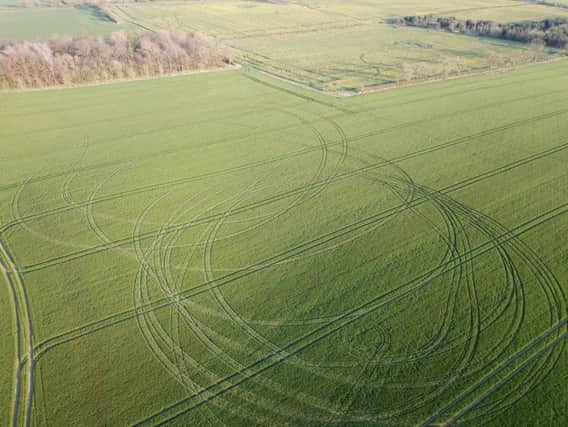Warning as police step up rural crime operation and reveal poaching hotspots


Poaching offences are known to increase during September and October, after crops have been harvested and fields are left empty and open.
North Yorkshire Police has joined Operation Galileo, a major clampdown on poaching offences. As part of this, vehicles previously linked to poaching will be identified and targeted.
Advertisement
Hide AdAdvertisement
Hide AdSuspects will be stopped and dealt with robustly, the force has said, while victims will be visited to obtain witness statements.
Police intelligence and the Automatic Number Plate Recognition (ANPR) network will also be used during the crackdown, while days of action are planned using officers and specialist resources from the Rural Taskforce, Proactive Policing teams, Neighbourhood Policing officers and Mobile Rural Watch volunteers. During these days, police will deploy to areas of high activity, to prevent offending and investigate offences.
There were 1,561 poaching offences recorded across North Yorkshire between August 2016 and July 2017, with the worst-affected districts being Hambleton and Selby.
Following a concerted effort to tackle the issue the numbers fell to fewer than 1000 between August 2017 and July 2018, although Hambleton and Selby remained the key hotspots for poachers.
Advertisement
Hide AdAdvertisement
Hide AdInspector Jon Grainge, of North Yorkshire Police’s Rural Taskforce, said: “All too often, offenders involved in poaching are also involved in other aspects of criminality, and landowners who suffer from this activity are often victims of other offences. Landowners often report threats of violence or intimidation being made by offenders if they are challenged, leaving them feeling especially vulnerable to further crimes, such as theft or criminal damage.
“A key aspect of Operation Galileo is that we work so closely alongside other forces who are also affected by poachers. We know offenders are prepared to travel long distances, and may commit offences in different force areas, so this joined-up approach makes absolute sense, and enhances the policing service we deliver to our rural communities.
“We know that poaching offences tend to increase in the autumn. However, anyone thinking of coming to North Yorkshire to commit such offences should know that this behaviour will simply not be tolerated. Officers are working hand-in-hand with local communities. We rely on residents to call in suspicious activity, and we will take such reports extremely seriously. Illegal poachers will find it extremely difficult to enter and leave North Yorkshire unchallenged.”